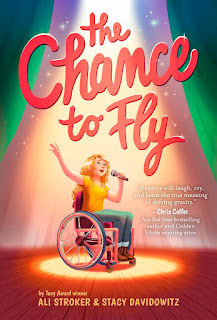By Kristen Lopez at IndieWire:
I spend a lot of my time talking about the state of disability representation in media. It’s never been a good time to be disabled, and movies and television have only perpetuated the belief that our lives are sad, broken, and fodder for able-bodied inspiration. I’ve prefaced my answer to the question, “What’s the best disabled movie?” with “Well, nothing’s perfect but….” for years.
That all changed when I watched Jim LeBrecht and Nicole Newnham’s “Crip Camp.” There are two competing storylines within the Netflix documentary. The first is about Camp Jened, a summer camp in the Catskills. Full disclosure: I never got the opportunity to go to summer camp and I’ve been bummed ever since. My parents knew nothing about summer camps for the disabled when I was growing up, and even if they had, as first-time parents of a disabled child they lacked the confidence to send me out on such a voyage to the unknown.
In one key moment in “Crip Camp,” the kids talk about the assumptions their families make about them. Really, the entire documentary focuses on breaking down assumptions about those with disabilities. These kids are perceived to be perpetual virgins, to be dumb, to be otherwise lesser-than. Their parents care, but these kids know their parents underestimate them. I love my parents, but we’ve had our fair share of discussions about the regrets I’ve had through life feeling like they didn’t encourage me. Hearing these teens talk so frank, it showed what I’d been missing being the only disabled girl in my bubble.
More importantly, “Crip Camp” is the story of how Camp Jened galvanized these kids to become activists for the Disabled Rights Movement. Their time at this camp, feeling the true freedom and equality they didn’t find at home, caused them to understand that they (and by extension all of us with disabilities) have the power to ask for more than what we get.
Some viewers might balk at the subject matter of “Crip Camp” as too didactic or dour. But let’s be honest here: That’s the ableism talking. For too long, disabled narratives have been presented as sad and educational because, again, our lives are generally shown through the prism of being sad and educational. That’s not what “Crip Camp” does. Instead, it shows what disabled narratives can be.
In an interview last year with Newnham and LeBrecht, the latter discussed how he saw this film as “a golden opportunity” to finally tell the type of disabled stories he’d always wanted. LeBrecht wanted to tell a story about his time at Jened, a place where he found liberation, joy, and a sense of normalcy outside of his home. Newnham said she’d watched LeBrecht “spend a lot of his time and energy as an advocate for better representation for people with disabilities,” especially disabled filmmakers, so when he brought up his time at Camp Jened it seemed, for LeBrecht especially, “like a golden opportunity.”
The problem is, because the disabled landscape on film and TV remains heavily skewed towards white men, and disabilities remain aesthetically relatable to the able-bodied, “Crip Camp” challenges all of those assumptions. These kids at Camp Jened aren’t just talking about sex or having a crabs outbreak — summer fun for the average kid, amiright? — they’re doing it and not being conventionally attractive. Disability remains so stigmatized because people aren’t used to seeing disability as it is.
An able-bodied, proportionate woman sitting down in a wheelchair is not the same as someone with brittle bone disease in a wheelchair, or someone who is quadriplegic. Seeing someone with polio or spina bifida talking about sex, there’s an immediate shock from the able-bodied audience because they’ve never interacted with a person who has that disability, let alone hear about their sex life. If disabled people were shown in all different forms, as they are in “Crip Camp,” that shock would disappear.
When the pandemic first started, I saw it as an opportunity to confront the systemic inequalities that keep disabled people feeling like they aren’t part of society. If the last year has had anything passing for a silver lining, it’s that aspects of daily life that people with disabilities have long wanted to happen finally did.
“Crip Camp” brings a similar reckoning. If it won the Best Documentary Feature, that would be a clear example of what disabled audiences want to see. To reward its success would prove, once again, that there is a way to make disabled stories fun and accessible to everyone.
This year’s Academy Awards ceremony is poised to make history on a few fronts, from Best Director frontunner Chloé Zhao’s win to the possibility of Viola Davis being the second Black woman to win Best Actress. But if “Crip Camp” wins, it will represent another groundbreaking achievement — LeBrecht would be the first disabled director to win an Oscar — and it would be just as significant.


